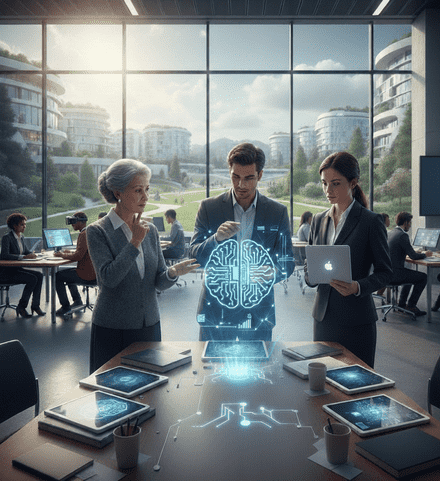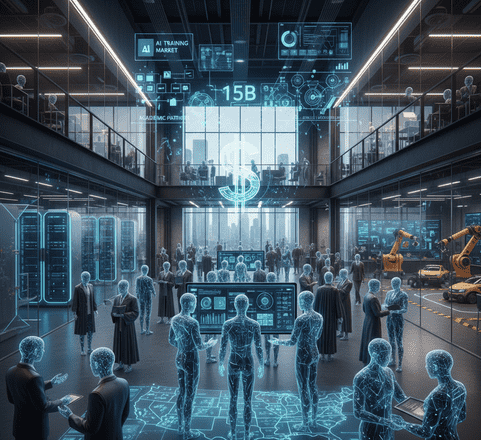How RemotePass’s “Ask AI” Is Redefining HR Analytics
Introduction
HR professionals say they spend more than half their time pulling together reports rather than making decisions from them. And on top of that, the global HR analytics market is expected to reach USD 12 billion, growing at over 14% annually. (Source)
Into this landscape steps RemotePass, with its new tool Ask AI, described as the world’s first HR AI tool. It lets C-suite, HR, and finance leaders interact securely with their HR & payroll data, in real time, via natural conversation. (Source)
In this blog, we’ll explore what Ask AI means for professionals, organizations, and the job market. And how AI in human resources, HR technology, and AI workforce management is evolving.
Let’s begin!
What Does Ask AI Bring?
RemotePass’s Ask AI offers many concrete features:
- A conversational interface where leaders can ask complex queries of their HR & payroll data (e.g., “If we convert 20% of contractors in MENA to full-time employees next quarter, what’s the impact on payroll taxes, benefits, and total spend?”) and instantly see results.
- Visual formats (charts, tables) to transform numbers into insights in seconds.
- Emphasis on data security and private access: leaders get answers using their organization’s real, sensitive data (not generic or public data), so confidentiality and relevance are preserved.
- A roadmap toward not just insight, but action: onboarding, approvals, and payroll all via a single command in future iterations.
These features combine multiple HR tech trends: conversational AI, real-time HR analytics, automated decision support, and AI workforce management.
Suggested read: AI in HR Certification – Boost Your HR Skills Today
This gives a nice foundation if you’re considering how to strengthen your HR-technology knowledge base.
What Professionals Need to Know?
Professionals in HR, finance, or leadership roles should take away several lessons and possible action points from this development:
- Data fluency is no longer optional: Being able to ask intelligent questions of your HR data, understand insights, and use them to influence strategic decisions will increasingly separate top performers.
- Speed is a competitive advantage: Providing insights in seconds means less waiting, faster pivots, and more responsive decisions. If your organization still relies on slow manual reporting or static dashboards, you might already be behind.
- Collaborative decision-making gets easier: When HR, finance, and leadership can explore scenarios together (e.g., cost of contractor conversion, benefits costs, tax exposure) using the same live data, alignment improves.
- Tech adoption mindset: The tool illustrates how generative AI in HR and conversational interfaces are moving from proof-of-concepts to baked-in components of HR technology stacks. Professionals must adapt, learn, and anticipate how their roles will shift (e.g., less manual reporting, more insight generation, and more strategic work).
- Ethics, privacy & governance become central: Handling sensitive HR & payroll data with AI tools demands strong data governance, privacy mechanisms, and compliance. Misuse or data breaches could be damaging.
Suggested read: Transforming HR with AI Trends, Tools, and Certifications
Helps you explore which tools are trending and what certifications can give you an edge.
How Can Organizations Prepare?
From an organizational point of view, RemotePass’s Ask AI underscores transformations in how HR & finance functions operate. Here are some lessons and recommendations:
- Re-architect HR & payroll systems: with an eye toward integration. Tools like Ask AI require data that is well-structured, clean, secure, and updated. Legacy silos or disconnected data will limit usefulness.
- Invest in change management: People expect tools to work well, but adoption is always a hurdle. Training, clear communication, and demonstrating value (short-term wins) are vital.
- Define governance around AI & data: Who can ask what questions of the data? Who approves insights being used for decisions? What privacy or regulatory requirements need to be met (especially in multijurisdictional or cross-border payroll
- Focus on outcome, not just tools: The value is less in having an AI chat interface
,but more in gaining actionable insights: cost savings, better workforce planning, compliance, optimizing benefits, minimizing tax exposure, and improving employee experience. - Prepare HR and finance teams for new skill sets: Less heavy on manual compiling of reports, more on interpreting analytics, scenario planning, strategic thinking, being able to frame questions well for AI, and overseeing AI-driven workflows.
Suggested read: Winning With AI: Indosat Ooredoo Hutchison and the Evolution of HR
Good case examples of how organizations implement these strategies in real settings.
What Changes for Professionals & Employers?
With tools like Ask AI becoming more common, the job market will shift. Here’s what to expect and how different roles will evolve:
Roles That Might Change
- HR Analysts / Data Specialists will be more in demand. As HR technology and HR analytics become core, having people who can work with data, build and validate models, and translate numbers into strategy will be highly valued.
- HR Generalists will need to upgrade. The ability to use AI tools, understand scenario analysis, partner with finance, and influence strategy will be expected. If you’re just processing paperwork, skills will be less in demand.
- Finance / Payroll Experts will also need to become more conversant with AI in HR, because decisions are increasingly joint: payroll costs, tax liabilities, and benefits design are all connected to HR tech.
- AI / Machine Learning specialists are going to be involved in building, maintaining, securing, and advancing these systems, so demand for people who understand both the HR domain and AI technologies will grow.
New Skills & Certifiable Skills
One will benefit from AI certification for HR professionals. These prove you can:
- Understand HR technology tools and platforms (what AI can and cannot do).
- Use HR analytics well (interpret data, forecast, and scenario plan).
- Work with generative AI safely and productively (e.g., crafting prompts, verifying outputs, checking compliance).
- Apply ethical and legal best practices around privacy, bias, and fairness.
Employment Opportunities & Challenges
- The supply of HR tech-savvy professionals will lag demand, so people who upskill now will have a competitive advantage.
- Some more routine HR jobs may decline or be reshaped: roles focused on data gathering, manual reporting, basic payroll, or attendance tracking could be increasingly automated.
- Simultaneously, there will be new jobs like AI oversight, data governance, AI ethics in HR, and HR tech product management.
- Employers will expect more continuous learning; certifications and ongoing training will matter.
Suggested read: Global Human Capital Trends and the Rise of AI in HR Management
If you want to understand broader labour market shifts and global HR trends alongside AI, this is a great piece.
What This Says About the Future of HR
Putting together the developments, professionals, and organizations should anticipate that:
- AI workforce management becomes a core competency: managing people, costs, and compliance through AI-enabled forecasts and scenario analysis will become standard.
- HR analytics evolve from descriptive to predictive and prescriptive: no longer just “what happened” but “what could happen” and “what should we do”.
- Generative AI in HR workflows: not just in data insight but in operational tasks—onboarding, approvals, policy generation, and even employee self-service.
- The human element remains critical: judgment, ethics, culture, emotional intelligence, and the ability to ask good questions (prompt engineering, in effect) will be differentiators.
- Regulation, privacy, and fairness are increasingly spotlighted: as more sensitive data is used and decisions are increasingly automated, oversight, audit, and transparency will be under scrutiny.
Suggested read: ChinaBanks Leap: A Blueprint for AI-Powered Human Capital Management
This one offers interesting lessons from large-scale AI-powered HR implementations in large banks, which can be analogous for many organizations.
Why You Need “AI Human Resource Certification” More Than Ever?
RemotePass’s Ask AI proves that HR technology is accelerating, and AI workforce management and HR analytics are moving from nice-to-have to must-have. Also, professions will shift: those who adapt, learn, and validate their skills will thrive.
For individuals, pursuing an AI HR certification is one of the clearest ways to future-proof your career. It shows you know current tools, trends, and ethical practices.
For organizations, encouraging or supporting these certifications for your HR, finance, and leadership teams will pay off. Certified professionals are better able to implement advanced tools, avoid pitfalls, optimize processes, and guide strategy with confidence.
If you want to stay ahead in understanding HR technology, mastering HR analytics, and helping shape the future of HR, AI CERTs® offers the AI Human Resource certification.
Whether you’re just starting or looking to deepen your expertise, now is the time to act.
Recent Blogs

FEATURED
What U.S. Organizations Can Teach European Partners About AI Training Mandates
February 9, 2026
FEATURED
Leveraging AI Training Partnerships to Address Workforce Displacement Fears in Europe & America
February 9, 2026
FEATURED
Why AI Governance & Literacy Must Be at the Heart of University Curricula and Corporate Learning
February 7, 2026
FEATURED
Why the AI Instructor Shortage Is a Strategic Opportunity for Partners
February 7, 2026
FEATURED
The $15B U.S. AI Training Market- Where Enterprise & Academic Partners Fit In
February 7, 2026

